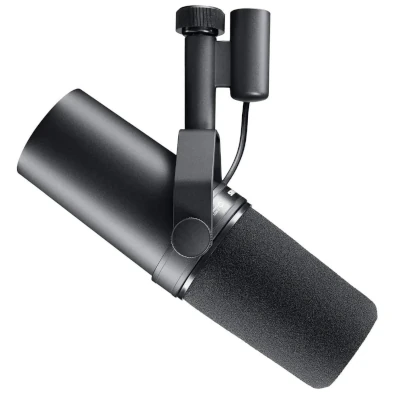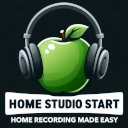Have you ever tuned into a podcast and felt completely captivated by the conversation? You know, those moments when the host and guest seem to have such a seamless rapport that time just flies? What if I told you that mastering the art of podcast interviews isn’t just for seasoned pros but is a skill you can develop too? In today’s digital age, where anyone can start a podcast with just a microphone and a good idea, standing out truly lies in the way you engage your guests and audience.
Imagine creating a podcast that not only draws listeners in but also keeps them coming back for more — that’s the magic of an engaging interview! Whether you’re looking to spark deeper conversations, uncover fresh insights, or simply enhance your hosting skills, the right techniques can turn an average interview into an unforgettable listening experience.
In this blog post, we’re going to dive deep into the techniques for conducting engaging podcast interviews. From building an authentic connection with your guests to mastering the art of follow-up questions, we’ll explore actionable tips and real-world examples that will elevate your podcasting game. Ready to transform your interviews from good to legendary? Let’s get started!
1. Preparation Strategies for Effective Interviews
When it comes to conducting engaging podcast interviews, preparation is key. It’s not just about having a microphone and a guest; it’s about crafting an experience that captivates your audience. Let’s dive into some practical tips that can elevate your podcast game!
Research Your Guest
First things first, spend time researching your guest. Dive into their background, past interviews, and social media presence. This not only helps you formulate relevant questions but also shows your guest that you value their time. For instance, if you’re interviewing a musician, check out their latest album or recent performances. This knowledge will allow you to ask questions that reflect their current work and spark meaningful discussions. Take, for example, the podcast “Song Exploder,” where the host dives deeply into the creative process of musicians. This thorough preparation leads to richer, more engaging conversations.
Create a Question Outline
Next up, outline your questions. Craft open-ended questions that encourage storytelling rather than simple yes-or-no answers. For instance, instead of asking, “Did you enjoy making your last album?” consider asking, “What was the most surprising moment during the creation of your last album?” This opens the door for your guest to share insights that listeners love to hear.
Test Your Equipment
Don’t forget to check your equipment! Nothing kills the vibe of an engaging interview faster than technical issues. Do a sound check and ensure your recording software is functioning properly. If you’re using remote recording tools like Zoom or Riverside.fm, familiarize yourself with their features ahead of time. This preparation minimizes distractions during the interview, allowing the conversation to flow smoothly.
Have a Backup Plan
Lastly, always have a backup plan. Technology can be unpredictable, so consider recording your interview on multiple devices or platforms. This way, if something goes wrong, you won’t lose valuable content and can keep your audience engaged. Remember, the goal is to create an enjoyable experience for both your guest and your listeners!
By implementing these preparation strategies, you’ll set the stage for effective and engaging podcast interviews that resonate with your audience. Happy podcasting!
2. Building Rapport and Creating a Comfortable Atmosphere
When it comes to conducting engaging podcast interviews, one of the most crucial elements is building rapport with your guest. Establishing a connection right from the start not only helps your guest feel comfortable but also enhances the quality of the conversation, leading to richer content for your listeners.
Why Rapport Matters
Think about it: Would you open up about your experiences or share your thoughts if you felt tense or observed? Probably not! Building rapport creates a safe space, allowing your guest to express themselves freely. For example, consider the famous podcast host, Joe Rogan. His casual style and ability to connect with guests lead to profound and often unexpected conversations. That’s the magic of rapport!
Practical Tips to Build Rapport
- Start with Small Talk: Engage in light conversation before diving into the interview. Ask about their day, interests, or even a recent experience. This warm-up helps ease nerves.
- Use Active Listening: Show genuine interest in your guest’s responses. Nodding, maintaining eye contact (if on video), and asking follow-up questions can go a long way in showing you care about what they’re saying.
- Find Common Ground: Look for shared interests or experiences that you can discuss. If both of you love hiking, for instance, this can serve as a comfortable conversation starter.
- Be Authentic: Share a bit about yourself too. Letting your guest know who you are can break down barriers and foster a more genuine interaction.
Real-Life Application
Take a look at how Marc Maron handles his podcast, “WTF with Marc Maron.” He often opens with personal stories or observations, which sets a relaxed tone for his interviews. This approach not only helps his guests feel at ease but also invites listeners into a more intimate conversation.
In summary, building rapport and creating a comfortable atmosphere aren’t just niceties—they’re essential techniques for conducting engaging podcast interviews. With these strategies in your toolkit, you’re set to foster meaningful discussions that resonate with your audience!
3. Utilizing Technology and Equipment for a Seamless Interaction
Choosing the Right Equipment

To make your podcast interviews engaging, the first step is ensuring you have the right equipment. A quality microphone, like the Audio-Technica ATR2100x or the Shure SM7B, can drastically improve your audio quality, making your guests sound clear and professional. Don’t forget a good pair of headphones, such as the Audio-Technica ATH-M50X, to help you monitor the conversation without distractions.
Leveraging Recording Software
Next up, let’s talk about recording software. Tools like Zoom or Riverside.fm are fantastic for remote interviews, allowing you to record high-quality audio and video. Riverside, for instance, records each participant locally, ensuring that even if your internet connection falters, you’ll have a crystal-clear recording. For editing, software like Audacity (free) or Adobe Audition (paid) can help you polish your episodes, eliminating awkward pauses or background noise.
Utilizing Online Collaboration Tools
Don’t underestimate the power of online collaboration tools! Platforms like Trello or Google Docs can help you organize your questions and talking points before the interview. This preparation not only keeps the conversation flowing smoothly but also shows your guest that you value their time, making for a more enjoyable experience.
Implementing Backup Systems
Finally, always have a backup system in place. Whether it’s a secondary recording device or a cloud backup for your files, technology can be unpredictable. Tools like Otter.ai can transcribe your interviews in real-time, providing you with a textual backup and making it easier to pick out quotes for promotion later on.
By utilizing the right technology and equipment, you can create a seamless interaction that captivates your audience and keeps your guests coming back for more!
4. Engaging Storytelling Techniques in Interviews
When it comes to conducting engaging podcast interviews, the art of storytelling is your secret weapon. It’s not just about asking questions; it’s about weaving a narrative that draws your listeners in and keeps them hooked. Employing effective storytelling techniques can transform a standard interview into a captivating experience.
Creating a Connection Through Personal Stories
One of the most powerful ways to engage your audience is by encouraging your guests to share personal anecdotes. For instance, if you’re interviewing a musician, ask them about the moment they realized they wanted to pursue music. This not only humanizes them but also allows listeners to connect emotionally. A great example is the “Song Exploder” podcast, where artists narrate the stories behind their songs, making each episode a unique journey.
Using the ‘Hero’s Journey’ Framework
Consider framing your interview using the classic “Hero’s Journey” structure. This narrative arc includes stages like the call to adventure, facing challenges, and ultimately achieving transformation. For example, if you’re interviewing an entrepreneur, you might explore their beginnings (the call), the struggles they faced (the challenges), and their eventual success (the transformation). This technique keeps listeners engaged as they root for the guest’s triumphs.
Asking Open-Ended Questions
Instead of simple yes or no questions, dive deeper with open-ended queries. For instance, rather than asking, “Did you enjoy your last tour?” try, “What was the most memorable moment from your last tour, and why did it stand out?” This encourages richer responses and more engaging storytelling. Additionally, encourage follow-up questions based on their answers to delve deeper into their stories.
Utilizing Cliffhangers
Don’t be afraid to leave your listeners wanting more. You can do this by introducing cliffhangers—pausing at a critical moment in the story and teasing what’s to come. For example, if a guest is sharing a pivotal moment in their career, you might say, “But what happened next changed everything,” and then take a quick break or transition to another topic before returning to their story. This creates anticipation and heightens engagement.
By incorporating these storytelling techniques into your podcast interviews, you’ll not only create a more engaging experience for your listeners but also enrich the narrative of your guest’s journey. Happy interviewing!
5. Post-Production
Why Post-Production Matters
Engaging podcast interviews don’t just happen during recording; a significant part of the magic occurs in the post-production phase. This is the stage where you refine your content, ensuring it resonates with your audience and retains their attention. A well-edited podcast can elevate your conversation from good to unforgettable!
Editing for Clarity and Flow
First things first: editing. Cut out any long pauses, filler words, or off-topic tangents that might distract your listeners. For instance, if you have a guest who frequently says “um” or “like,” trimming these out can enhance the listening experience. Tools like Audacity or Adobe Audition are great for this. You’ll be amazed at how much smoother your podcast sounds after a little cutting and polishing.
Enhancing Audio Quality
Next up is audio quality. Poor sound can turn listeners away faster than a boring topic! Invest in a decent microphone and consider using noise reduction software to eliminate background noise. For example, if your conversation took place in a busy café, background chatter can muddy the audio. Use plugins like iZotope RX to clean up your recordings. A crisp, clear sound keeps your audience engaged.
Adding Music and Sound Effects
Don’t forget to incorporate music and sound effects! A well-placed sound bite can highlight a point or provide a smooth transition between topics. For example, if you’re discussing a particularly exciting moment in your interview, a brief musical cue can amplify that excitement. Just be sure to use royalty-free music to avoid copyright issues. Websites like Epidemic Sound or Artlist offer fantastic libraries to choose from.
Crafting Compelling Show Notes
Finally, let’s talk about show notes. Post a summary of your interview, including key takeaways, timestamps, and links to resources mentioned during the conversation. This not only helps your audience follow along but also improves your podcast’s SEO. For instance, if your episode features a discussion about songwriting techniques, include relevant links to articles or tools that can help your listeners dive deeper into the topic.
By focusing on these post-production techniques, you’ll create a podcast that not only captivates listeners during the interview but leaves them wanting more in future episodes!
Conclusion
In the world of podcasting, conducting engaging interviews can truly make or break your show. Remember, the essence of a great interview lies in a few key techniques we’ve discussed. Start by preparing thoroughly; doing your homework not only boosts your confidence but also enriches the conversation with insightful questions. Establish a comfortable rapport with your guest—this helps in drawing out genuine and compelling stories that resonate with your audience.
Utilize active listening as your guiding principle. Pay attention to your guest’s responses, as this allows you to ask spontaneous follow-up questions that can lead to unexpected and informative insights. Furthermore, encourage your guest to share personal anecdotes and detailed experiences—real stories have a unique power to engage listeners more than mere facts or theories.
Don’t forget to leverage your unique style! Whether it’s a splash of humor, a touch of warmth, or a dash of curiosity, let your personality shine through. This not only captivates your listeners but also creates a more relatable atmosphere for your interviewee.
Lastly, refining your editing skills and being mindful of pacing can elevate your final product. Remember that the best interviews flow seamlessly; therefore, cutting out any awkward pauses or filler can keep your audience hooked until the very end.
Now, it’s time for you to take action! Grab your microphone, plan your next interview, and implement these techniques. With practice and perspective, your podcast can become a beacon of engaging conversation that keeps your listeners coming back for more. Share your experiences with us or ask any questions—let’s create an incredible podcasting community together!

